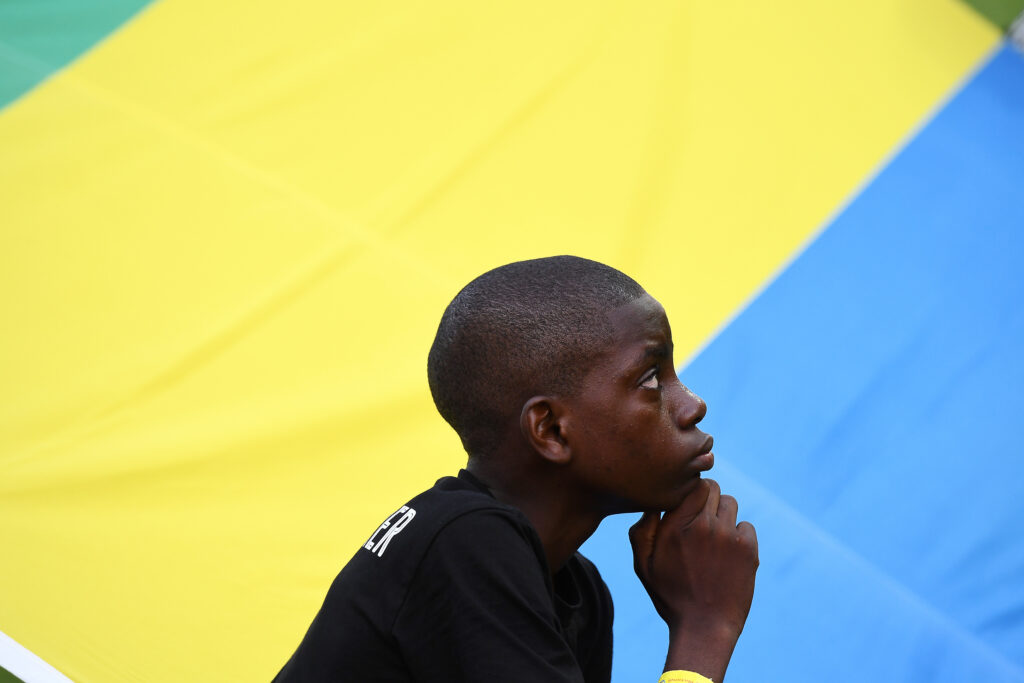Gabon, a small oil-rich but heavily indebted central African country, elects a new president on Saturday after 19 months of interim rule by military leaders who seized power in a coup.Here are five key facts about the country: – The Bongos -Strongman Brice Oligui Nguema, 50, has led Gabon since the August 30, 2023 putsch, which ended 55 years of Bongo family rule.Omar Bongo Ondimba came to power seven years after Gabon’s independence from France in 1960, ruling for nearly 42 years.On his death in 2009, his son Ali was elected, winning re-election in 2016 in a contested vote and was overthrown moments after being declared the winner for a third term two years ago.Bongo senior had the reputation of a kleptocrat — one of the richest men in the world, with a fortune derived from Gabon’s oil wealth.He also won respect for mediating in several African crises and was a key ally of “Francafrique”, a policy whereby Paris furthered its interests in Africa through cronyism. Ali Bongo has lived under house arrest in the capital Libreville since being toppled. His French-born wife Sylvia, 62, and son Noureddin, 33, are accused of embezzling public funds and, according to their lawyers, have suffered torture during their detention.- Military rule – Oligui had promised to hand power back to civilians after a transition period but announced he would run for president, ditching his military uniform to campaign.After the coup, the Committee for the Transition and Restoration of Institutions (CTRI) formed a government that included civilians, held a national consultation and drew up a new constitution widening the president’s powers.It promised to revive an economy wracked by “14 years of waste and looting” but the national debt has only deepened, from 72.1 percent of gross domestic product in 2023 to 73.3 percent last year.- Oil powerhouse -Gabon is one of the richest countries in Africa in terms of per-capita GDP, thanks to oil, wood and manganese — used in steelmaking and batteries — and the small population of 2.3 million. But as global crude prices have fallen, the contribution of Gabonese oil production to GDP has fallen and it is struggling to diversify its economy.In 50 years, the average income per capita has halved and more than a third of the population lives on less than $2.15 a day, according to the World Bank.- Africa’s ‘Eden’ -Forests cover 88 percent of the surface of Gabon, providing a haven for gorillas, buffalo, panthers, elephants, chimpanzees and other species.The country, which markets itself as the “last Eden”, has become a major advocate for conservation in a region where wildlife is being battered by wars, habitat destruction and the bushmeat trade.Gabon’s forests capture more carbon dioxide than the country emits and it has a low rate of deforestation, according to the World Bank.- Healer or hallucinogenic? -A powerful psychoactive root found in Gabonese forests is used to make a drug that has been touted as a potential healer of heroin and cocaine addiction.The hallucinogenic iboga root is used in ancestral initiation rituals, including the “bwiti” which combines worship of forest spirits with elements of Christianity.High doses can have effects similar to LSD, mescaline or amphetamines, and cause anxiety, extreme apprehension and hallucinations.But the pill form of the drug, ibogaine, has also been hailed for helping some drug addicts kick their habit. Treatment centres using the drug have sprung up in countries including Costa Rica, New Zealand and the Netherlands.
